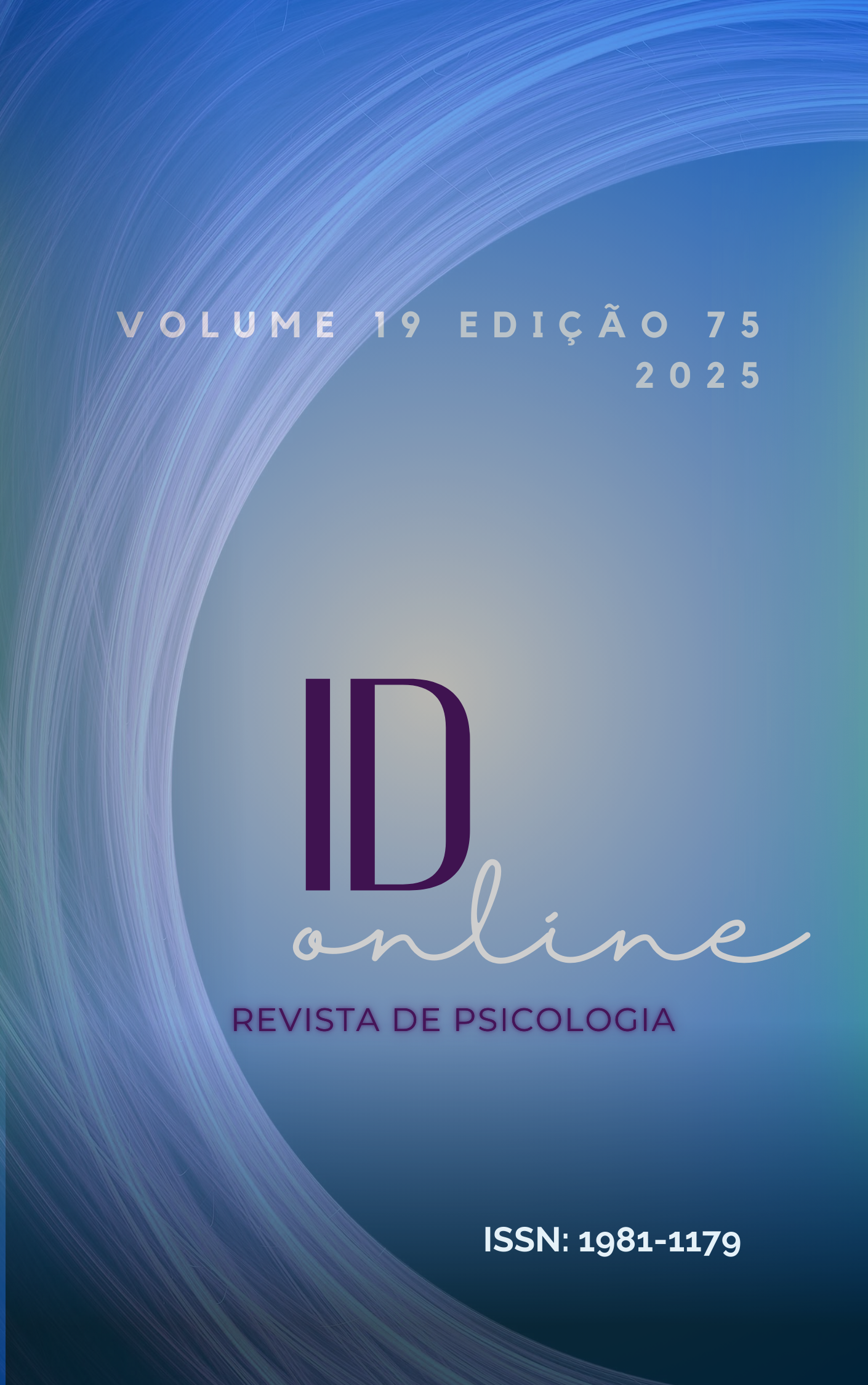The Importance of Emotional Intelligence in Leadership applied in the Organizational Context
DOI:
https://doi.org/10.14295/idonline.v19i75.4153Keywords:
Emotional Intelligence, Organizations, LeadershipAbstract
Emotional intelligence plays a fundamental role in the organizational environment, observing how leaders act with their own emotions and with the emotions of others. There is a notable shortage of managers capable of controlling their own feelings and handling conflicts arising from the workplace. In this context, this study aims to explore the relevance of emotional intelligence in the organizational context and its applicability in leadership. It is believed that emotional intelligence becomes an essential skill for people's success, both in their professional and personal lives. Therefore, EI influences not only the individual success of the manager, but also of the organization as a whole. For this, the methodology used was bibliographic research, articles, based on the works of Daniel Goleman, Chiavenato, among others. It is concluded that EI has become a key tool for organizations in developing leaders who seek to improve themselves, proving that the intelligent and correct use of emotion management in the organizational context helps to achieve better performance and create favorable results.
Downloads
References
CHIAVENATO, I. Comportamento organizacional: a dinâmica do sucesso das organizações. 3ª. ed. Barueri, SP: Manole, 2014.
Cortella, M. S. 2021. Qual é a tua obra?: Inquietações propositivas sobre gestão, liderança e ética. 25ed. Revista e atualizada. Editora Vozes Ltda, Petrópolis, RJ, Brasil.
DUBRIN, A.J. Fundamentos do comportamento organizacional. São Paulo: Pioneira Thomson Leaning, 2003.
GOLEMAN, D. Inteligência emocional: a teria revolucionária que redefine o que é ser inteligente. Rio de Janeiro: Objetiva, 2012.
GOLEMAN, Daniel. Trabalhando com a Inteligência Emocional. 1. Ed. Rio de Janeiro: Objetiva, 2011.
LIMA, L. F. G. de.; ASSAFRÃO, V. C. de L..; KUMANAYA, D. R. G..; PARO, J.A..;BONINI,L.M. de M.. INTELIGÊNCIA EMOCIONAL NAS ORGANIZAÇÕES: uma revisão de literatura. Revista Ibero-Americana de Humanidades, Ciências e Educação, [S. l.], v. 8, n. 8, p. 502–513, 2022. DOI: 10.51891/rease.v8i8.6523. Disponível em: https://www.periodicorease.pro.br/rease/article/view/6523. Acesso em: 29 dez.. 2023. DOI: https://doi.org/10.51891/rease.v8i8.6523
MOSCOVICI, F. Desenvolvimento Interpessoal. 17. Ed. Rio de Janeiro: José Olympio, 2015.
OLIVEIRA, K. Pesquisa de Clima Organizacional: saiba o que é e como implementar na sua empresa. PERSPECTIVA Consultores Associados Ltda. 2023. Disponível em: https://blog.academiaperspectiva.com/pesquisa-de-clima-organizacional-saiba-o-que-e-ecomo-implementar-na-sua-empresa/. Acesso em: 17 set. 2023.
PIRES, Alexandra Alves; et al. Eficácia da Inteligência Emocional e suas Competências no Ambiente Corporativo. Revista Foco, v. 17, n. 6, p. e 5207, 2024. Disponível em: https://ojs.focopublicacoes.com.br/foco/article/view/5207. Acesso em: 31 ago. 2024. DOI: https://doi.org/10.54751/revistafoco.v17n6-109
ROBBINS, S.P; Administração: mudanças e perspectivas. São Paulo: Saraiva, 2009.
SILVA, F. D.; SILVA, E. R.; BERGAMINI, G. B. O CLIMA ORGANIZACIONAL COMO FATOR PARA O DESEMPENHO PROFISSIONAL. Rev Cient Fac Educ e Meio Ambiente [Internet] FAEMA. ;8(2):745-749. 2018. Disponível em: https://revista.faema.edu.br/index.php/Revista-FAEMA/article/view/603. Acesso em 06 out. 2023. DOI: https://doi.org/10.31072/rcf.v9i2.603
SOTO, E. Comportamento organizacional: o impacto das emoções. São Paulo: Pioneira Thomson Learning, Learning, 2002.
WEISINGER, H. Inteligência emocional no trabalho: como aplicar os conceitos revolucionários da I.E nas suas relações profissionais, reduzindo o estresse, aumentando sua satisfação, eficiência e competitividade. Rio de Janeiro: Objetiva, 2001.
Downloads
Published
How to Cite
Issue
Section
License
Copyright (c) 2025 Jéssica Thaís Viana Maranhão, Ana Lucia de Paula Ferreira Nunes

This work is licensed under a Creative Commons Attribution-NonCommercial 4.0 International License.
Os autores detêm os direitos autorais sem restrições, devendo informar a publicação inicial nesta revista, em caso de nova publicação de algum trabalho.










